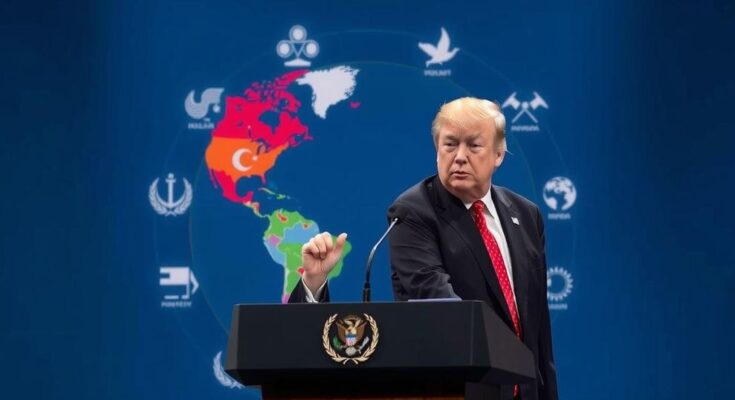At COP29 in Baku, nations agreed to a $300 billion annual fund for climate action, which developing nations criticized as insufficient. UN Secretary General António Guterres acknowledged the need for urgent financial commitments. Trump’s election raises doubts about U.S. participation in climate finance, as he has previously called climate change a “hoax.” Global warming remains a pressing issue, exacerbated by conflicts and natural disasters around the world.
At the COP29 summit held in Baku, delegates agreed on an annual global finance target of $300 billion to assist developing nations in the fight against climate change. This deal, reached during the summit’s final hours, faced immediate criticism from the intended beneficiaries, who deemed it inadequate for the enormity of the climate crisis. UN Secretary General António Guterres expressed disappointment regarding the lack of ambition in the agreement but acknowledged it as a foundation for future progress. Meanwhile, President Joe Biden lauded the participants for their efforts, although concerns loom regarding the upcoming administration under Donald Trump, who has voiced intentions to withdraw the United States from climate pacts altogether.
The election of Donald Trump has cast a shadow over the COP29 agreement, raising fears about the commitment of the United States, the world’s largest historical emitter of greenhouse gases, to contribute meaningfully to climate finance. Trump’s rhetoric describes climate change as a “hoax,” and he has positioned climate change deniers in key energy roles, such as Chris Wright’s appointment to lead the Department of Energy. This shift is likely to dampen expectations of U.S. financial support for the climate initiative agreed upon in Baku.
The geopolitical landscape is increasingly overshadowing climate commitments, with escalating conflicts such as those in Ukraine and the Middle East taking precedence. Furthermore, 2023 is projected to be one of the hottest years on record, exacerbating climate-related disasters across the globe. Developing nations continue to face catastrophic events, including severe flooding in Africa and devastating landslides in Asia, while even developed nations are not immune, evident from the recent catastrophic floods in Spain.
As the effects of climate change intensify, with record disasters occurring in the U.S. and beyond, global leaders are urged to prioritize and act on climate finance commitments to mitigate adverse impacts on vulnerable populations, who are already experiencing the harsh realities of a changing climate.
The COP29 summit held in Baku focused on addressing climate change and providing financial assistance to developing nations grappling with its consequences. The goal of establishing a $300 billion annual finance target emerged as a critical component of the discussions. However, the agreement’s perceived inadequacy highlights ongoing tensions between developed and developing nations regarding financial responsibility and climate mitigation efforts. The changing political landscape in the U.S., specifically under the incoming Trump administration, poses a significant threat to international climate agreements and may affect global climate finance goals.
The outcomes of COP29 underscore persistent challenges in global climate negotiations, particularly regarding financial commitments from developed nations to support vulnerable countries. With significant discrepancies between aspirations and commitments, particularly from the U.S., the path forward appears fraught with difficulty. Global leaders must work collaboratively to uphold the climate finance agreement and prioritize the needs of those most affected by climate change, ensuring that commitments translate into actionable funds to address the pressing climate crisis.
Original Source: al24news.com




